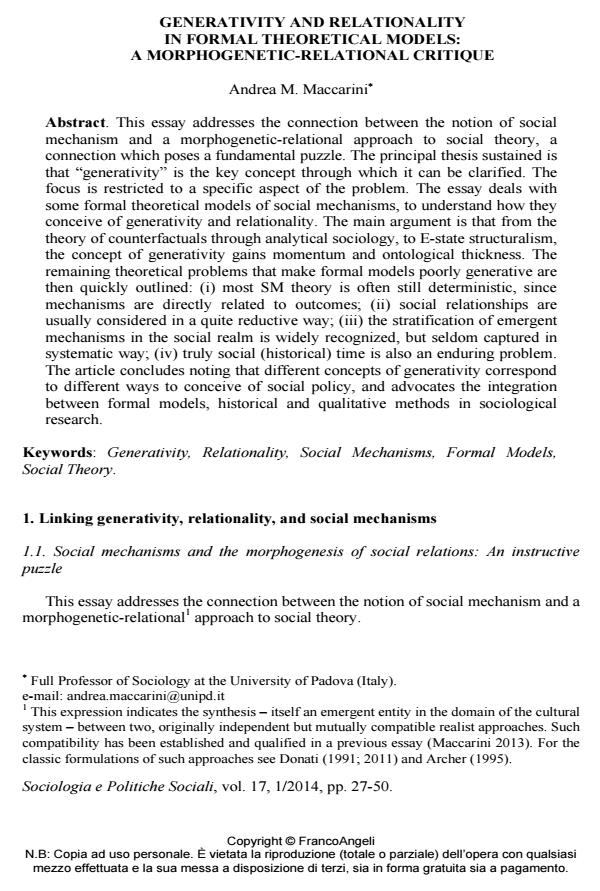Generativity and relationality in formal theoretical models: a morphogenetic-relational critique
Journal title SOCIOLOGIA E POLITICHE SOCIALI
Author/s Andrea M. Maccarini
Publishing Year 2014 Issue 2014/1
Language English Pages 24 P. 27-50 File size 152 KB
DOI 10.3280/SP2014-001003
DOI is like a bar code for intellectual property: to have more infomation
click here
Below, you can see the article first page
If you want to buy this article in PDF format, you can do it, following the instructions to buy download credits

FrancoAngeli is member of Publishers International Linking Association, Inc (PILA), a not-for-profit association which run the CrossRef service enabling links to and from online scholarly content.
This essay addresses the connection between the notion of social mechanism and a morphogenetic-relational approach to social theory, a connection which poses a fundamental puzzle. The principal thesis sustained is that "generativity" is the key concept through which it can be clarified. The focus is restricted to a specific aspect of the problem. The essay deals with some formal theoretical models of social mechanisms, to understand how they conceive of generativity and relationality. The main argument is that from the theory of counterfactuals through analytical sociology, to E-state structuralism, the concept of generativity gains momentum and ontological thickness. The remaining theoretical problems that make formal models poorly generative are then quickly outlined: (i) most SM theory is often still deterministic, since mechanisms are directly related to outcomes; (ii) social relationships are usually considered in a quite reductive way; (iii) the stratification of emergent mechanisms in the social realm is widely recognized, but seldom captured in systematic way; (iv) truly social (historical) time is also an enduring problem. The article concludes noting that different concepts of generativity correspond to different ways to conceive of social policy, and advocates the integration between formal models, historical and qualitative methods in sociological research.
Keywords: Generativity, Relationality, Social Mechanisms, Formal Models, Social Theory.
Andrea M. Maccarini, Generativity and relationality in formal theoretical models: a morphogenetic-relational critique in "SOCIOLOGIA E POLITICHE SOCIALI" 1/2014, pp 27-50, DOI: 10.3280/SP2014-001003